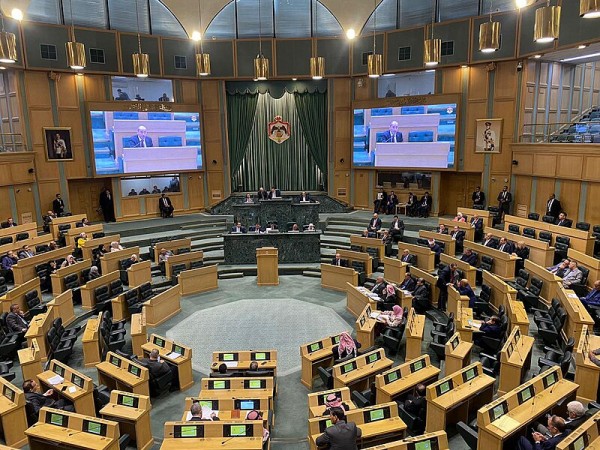The International Press Institute (IPI) last week completed a two-day emergency press freedom mission to Jordan, as a direct response to the suspension of more than 200 online news websites by the Jordanian authorities.
The move came just two weeks after IPI’s World Congress in Amman May 19-21, and appears to place Jordan at odds with its freedom of expression commitments under international human rights agreements, as well as with Article 15 of the Constitution, which forbids censorship.
The joint mission was led by IPI Deputy Director Anthony Mills, and included IPI’s Jordanian Executive Board member Daoud Kuttab (whose site, AmmanNet, was one of those blocked); Nidal Mansour, the Executive President of the Amman-based Center for Defending Freedom of Journalists (CDFJ); Said Essoulami, ARTICLE 19’s Senior MENA Consultant; and Adam Coogle, Human Rights Watch (HRW) Jordan and Saudi Arabia representative.
Following completion of the mission, Mills said: “We remain highly concerned by the continued suspension of the online new websites. We hope that it will be possible to build on the spirit of engagement proffered by His Excellency the Prime Minister, as well as representatives of parliament and other stakeholders, so that Jordan can realign itself with its freedom of expression commitments under international agreements. Every day that the news websites remain banned runs counter to that goal.”
The mission delegates met with a broad array of stakeholders, including: Jordanian Prime Minister Abdullah Ensour; Minister for Media Affairs Mohammad Momani; Head of the Press and Publications Department Fayez Shobaki; Acting Head of Parliament Khalil Attiyeh; Head of the Jordanian Senate Taher al-Masri; Jordan Bar Association President Samir Khirfan; a gathering of news website owners affected by the ban; and a cross-section of civil society.
Prime Minister Ensour acknowledged that there was room for improvement on the Press and Publication Law but suggested that the government was powerless to intervene and that any change would have to come in the form of proposed amendments in parliament. He indicated that the government would not stand in the way of such amendments.
The view that the law could be improved on was echoed by the parliamentary representatives the delegates met with.
Online news website representatives, though, expressed skepticism over the readiness of state representatives to address the situation and suggested that the move was part of a broader effort to stifle independent reporting in the country.
Before the mission, Jordan’s Telecommunications Regulatory Commission (TRC) had said the sites “did not comply with a recently introduced change to the state’s press and publications law”.
A letter sent by Jordan’s Head of the Press and Publications Department, Fayez Al Shawabkah, to the TRC stated that the decision was “Based on Article (49), Paragraph (G) of the Press and Publications Law number (8) for the year 1988 and its amendments”, and added that the blockages were intended to enhance the rule of law in the country “without restricting freedom of expression”.
Last year, the Jordanian parliament signed a new law requiring all news websites to be legally registered. The law also requires editors-in-chief of news websites to be members of the Jordan Press Association and holds them responsible for reader comments on their websites.
Addressing the participants of the IPI World Congress in Amman on May 20, Jordan’s Prime Minister Dr. Abdullah Ensour stated, “As part of our ongoing political reform process, Jordan has introduced new tools to further guarantee rights and freedoms, including media freedom. The recently established Constitutional Court, derived from the new constitutional amendments, guarantees that laws regulating rights and freedoms, including media freedom, shall not affect the essence of these rights or their fundamentals.”
IPI and its mission partners intend to continue to monitor the situation and to campaign for a reversal of the website suspension and the amendment of the Press and Publication Law.


